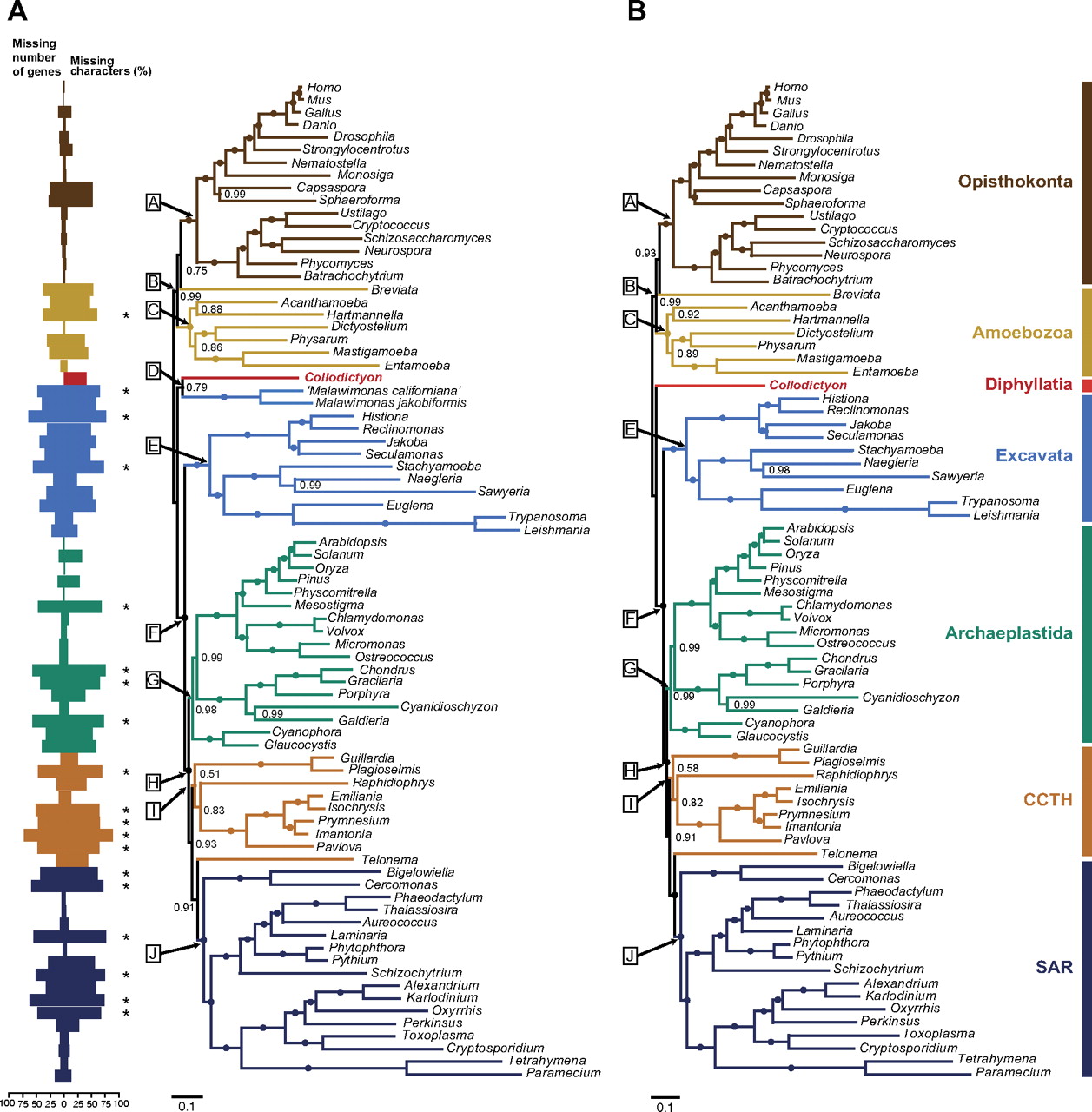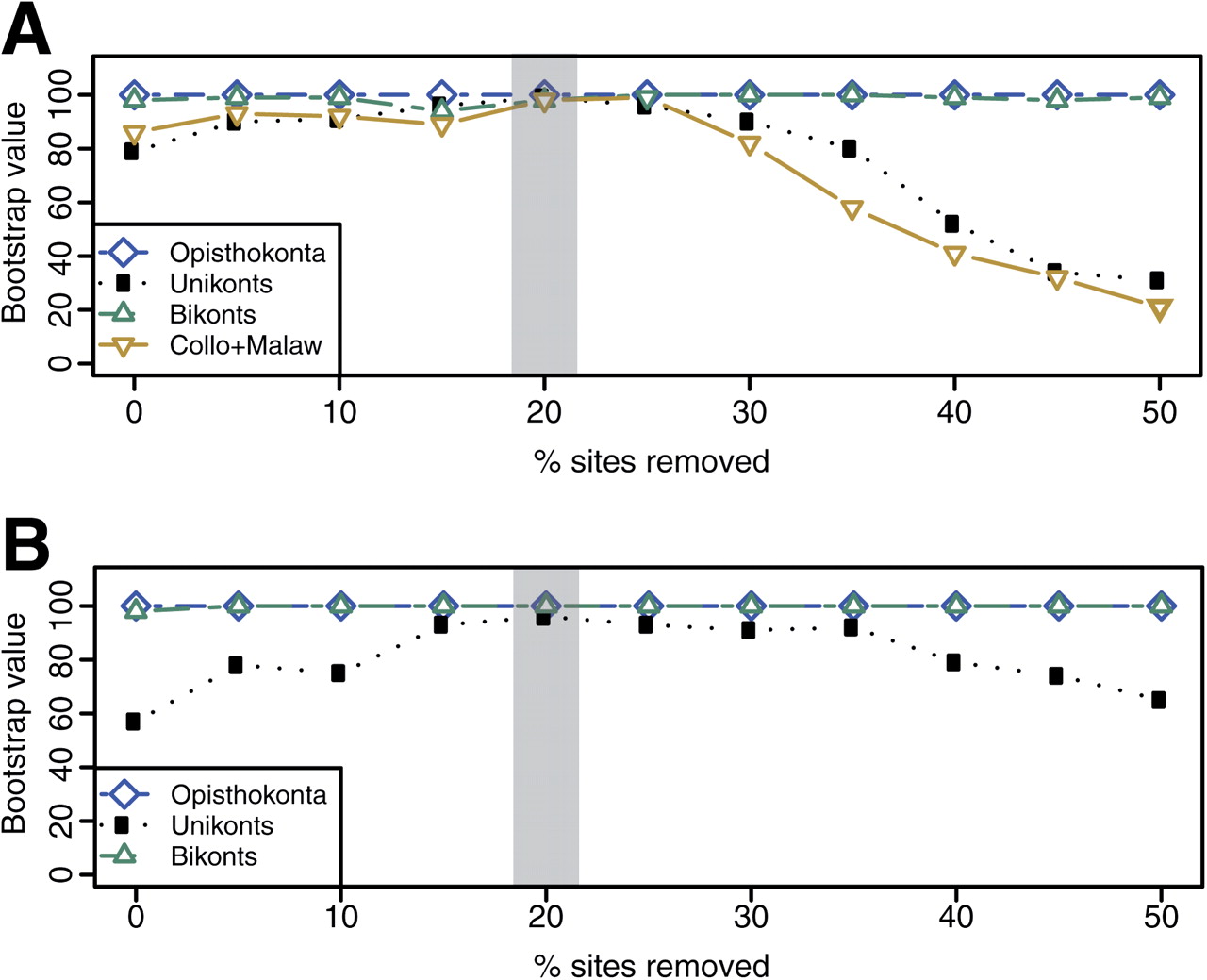Collodictyon - an ancient lineage in the tree of eukaryotes
Zhao, S., Burki, F., Bråte, J., Keeling, P. J., Klaveness, D., Shalchian-Tabrizi, K. 2012. Molecular Biology and Evolution. 29(6):1557-1568. doi:10.1093/molbev/mss001



Abstract
The current consensus for the eukaryote tree of life consists of several large assemblages (supergroups) that are hypothesized to describe the existing diversity. Phylogenomic analyses have shed light on the evolutionary relationships within and between supergroups as well as placed newly sequenced enigmatic species close to known lineages. Yet, a few eukaryote species remain of unknown origin and could represent key evolutionary forms for inferring ancient genomic and cellular characteristics of eukaryotes. Here, we investigate the evolutionary origin of the poorly studied protist Collodictyon (subphylum Diphyllatia) by sequencing a cDNA library as well as the 18S and 28S ribosomal DNA (rDNA) genes. Phylogenomic trees inferred from 124 genes placed Collodictyon close to the bifurcation of the ‘‘unikont’’ and ‘‘bikont’’ groups, either alone or as sister to the potentially contentious excavate Malawimonas. Phylogenies based on rDNA genes confirmed that Collodictyon is closely related to another genus, Diphylleia, and revealed a very low diversity in environmental DNA samples. The early and distinct origin of Collodictyon suggests that it constitutes a new lineage in the global eukaryote phylogeny. Collodictyon shares cellular characteristics with Excavata and Amoebozoa, such as ventral feeding groove supported by microtubular structures and the ability to form thin and broad pseudopods. These may therefore be ancient morphological features among eukaryotes. Overall, this shows that Collodictyon is a key lineage to understand early eukaryote evolution.